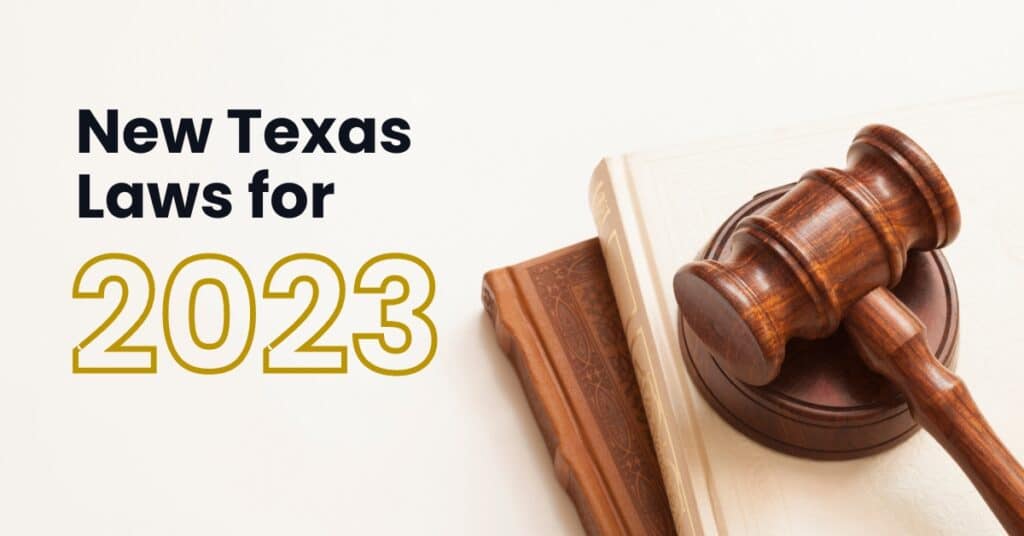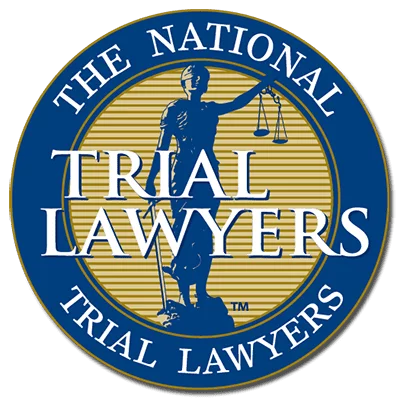Brief overview of the significance of new Texas laws
More than 770 new laws passed by the Texas Legislation this year are in effect, impacting everything from health care and education to public safety. September 1 is the traditional start day for laws passed during a regular legislative session, though some can have their effective date delayed in order to be fully implemented and bills passed by a two-thirds margin can go into effect immediately.
The significance of these new laws 2023 in Texas cannot be understated. They have the potential to affect the lives of millions of Texans in various aspects. From increasing funding for public schools to implementing stricter regulations on gun control, these laws reflect the priorities and concerns of the state’s lawmakers. In the days ahead, the impact of these laws will become more apparent, shaping the future of Texas for years to come.
What are the Categories of New Texas Laws?
The vast number of new laws cover a range of categories like criminal justice, education, healthcare, business and economy, environment, and miscellaneous. These new laws aim to address various societal issues and improve the overall functioning of these sectors. They reflect the government’s commitment to ensuring a fair and just society, promoting sustainable development, and fostering economic growth. All these 2023 laws going into effect by September 1 this year.
Criminal justice: Equal treatment under the law, better offender rehabilitation options, and increased public confidence in law enforcement are all goals of current efforts to reform the criminal justice system.
Education: The goals of the educational legislation are to broaden participation in and success in education for all students, and to create more welcoming classrooms and institutions for all students.
Business and Economy: The economic and business world wants to make doing business easier by lowering red tape and increasing openness.
Sustainable Environment: Efforts are also made to ensure a sustainable environment by decreasing carbon emissions, safeguarding natural resources, and promoting renewable energy. We’ll talk more about these and other recent laws below.
What are the Key Changes and Their Impacts?
A. Criminal Justice Laws
Several new Texas criminal justice laws aim to address various issues related to public safety, alcohol consumption, and responsible driving. Drivers in Texas should be aware of these changes to avoid potential legal consequences.
HB 420 – Giving Alcohol to a Minor Leading to Injury or Death: Providing alcohol to a minor was already a Class A misdemeanor, but this law increases penalties if the minor causes serious bodily injury or death. Offenders can now be charged with a state jail felony, punishable by up to two years in jail and a $10,000 fine.
HB 1163 – Boating While Intoxicated with a Child: This law elevates boating while intoxicated with a passenger under 15 to a state jail felony from a Class B misdemeanor.
SB 1551 – Refusal to ID While Driving: Drivers must now provide identification (driver’s license, name, address, and birthdate) when pulled over. Failure to comply can result in a Class C misdemeanor or a Class B misdemeanor if a false name is given.
HB 2899 – Race to the Impound: Law enforcement can now impound vehicles used in drag races without property damage or injury being a prerequisite.
HB 898 – Increased Move Over or Slow Down Penalties: The “Move Over or Slow Down” law requires drivers to change lanes or slow down when approaching certain vehicles with activated lights or signals on the roadside. Fines range from $200 for a first offense to $500 for subsequent offenses, and drivers may need to complete a driver education course.
HB 2195 – Obscured License Plates: It is now an offense to attach or display a license plate that obscures the letters, numbers, or color of the plate.
B. Education Laws
If you’re a student, teacher or a parent, you might want to take note of the following new laws relating to education. Notable ones are the following:
House Bill 567 – One of the bills, known as the Crown Act, specifically addresses race-based hair discrimination in education and other contexts. It covers various hairstyles like locs and braids and was prompted by the experiences of two Houston-area students who were instructed to cut their hair or face disciplinary action.
House Bill 1605 – Aims to provide parents with access to the educational materials used by teachers for their children. Additionally, it allocates nearly $800 million for the development of open-source, high-quality instructional materials, which will help teachers save time on lesson planning.
Senate Bill 1697- Grants parents the authority to decide whether their child should repeat a grade, up to the eighth grade, or retake a high school course, unless all graduation requirements have been met.
House Bill 900 – Introduces a significant change in school libraries. Starting in April, book vendors will be required to assign ratings to books based on their depictions or references to sexual content. Books categorized as “sexually explicit” will be removed from library shelves, while those considered “sexually relevant” will require parental permission for students to check them out.
C. Healthcare Laws
These following healthcare laws address a range of issues, from healthcare access to parental leave and public health measures, with the aim of improving various aspects of life in Texas.
HB 25 – Prescription Drug Importation: This law allows Texas to import cheaper prescription drugs from Canada through a program designed by the Health and Human Services Commission. It aims to make affordable drugs available to consumers.
HB 242 – Feminine Hygiene Distribution: Individuals, manufacturers, distributors, or nonprofit organizations will not face legal liability for distributing feminine hygiene products. This change promotes easier access to such products.
HB 916 – Contraceptive Supply: Health insurers are now required to provide a three-month supply of a new contraceptive drug and a 12-month supply thereafter. This ensures consistent access to contraception.
HB 1998 – Physician Regulations: Physicians who knowingly make false statements may be charged with a Class A misdemeanor, and those with revoked or suspended licenses in other states cannot practice in Texas. This law enhances physician accountability.
SB 29 – COVID-19 Preventative Measures: State and local governments are prohibited from enforcing certain COVID-19 measures, including mask mandates and business/school closures. This law limits pandemic-related restrictions.
SB 222 – Parental Paid Leave: State employees now have access to eight weeks (40 days) of paid parental leave, providing support for new parents.
SB 240 – Workplace Violence Prevention: Certain health facilities must establish workplace violence prevention committees to protect healthcare providers and employees from violence and threats.
SB 379 – Sales Tax Exemption: Sales tax on health-related and family care products like diapers, menstrual supplies, and breast milk pumping products is eliminated. This includes items such as wound care dressings, baby wipes, baby bottles, and maternity clothing.
SB 490 – Itemized Patient Bills: Healthcare providers and hospitals must provide patients with itemized bills for services and supplies during their visit, aiming to improve cost transparency.
SB 812 – Sergio Lopez Food Allergy Awareness Act: Restaurants are required to display posters about food allergen awareness for their employees. These posters inform about food allergies, symptoms, allergens, prevention procedures, and responses to allergic reactions, inspired by a tragic incident.
D. Business and Economy Laws
Business regulations and economic laws were also put in place. The following are some helpful laws we can all be aware of:
HB 2127 – Local Governance: Prevents cities and counties from enacting local laws that go beyond state law, aiming to standardize regulations across the state. It’s facing legal challenges to determine its full impact.
SB 29 – COVID-19 Mandates: Prohibits mask mandates, vaccine mandates, and business or school closures related to COVID-19, with exceptions for certain entities.
HB 19 – Business Judicial District: Establishes a new judicial district for business-related cases with values exceeding $10 million, appointed by the governor to reduce court backlogs and ensure expertise in complex civil business litigation.
HB 14 – Construction Permitting: Allows third-party review of building applications if local governments fail to issue permits within 15 days, aiming to expedite home and apartment construction to address housing costs.
E. Environmental Laws
New laws pertaining to environment and climate change were also implemented in order to address the growing concerns about the planet’s health.
HB 1500 – Electricity Grid: Alters electricity buying and selling on the state’s power grid, promoting on-demand power generation like natural gas plants and addressing transmission line costs.
SB 471 – Environmental Complaints: This law allows the Texas Commission on Environmental Quality (TCEQ) to choose not to inspect facilities when complaints are filed against them. Residents who make more than three complaints may face fines if investigations find no actionable enforcement. TCEQ will determine when fines are pursued and their amounts.
SB 784 – Greenhouse Gas Emissions Regulation: SB 784 shifts the responsibility of regulating greenhouse gas emissions from cities to the state of Texas, granting the state exclusive jurisdiction over this matter.
SB 1017 – Lawn Equipment and Fuel Source Regulations: This law prevents cities from regulating noise produced by lawn equipment and prohibits political subdivisions in Texas from adopting or enforcing regulations based on the fuel source of engines.
SB 1860 – Local Climate Charters: After September 1, 2023, cities will need legislative permission to address changes to their charters related to climate change, implementing a municipal policy for addressing climate charters at the local level.
HB 4018 – Carbon Offsets Market: HB 4018 enables the Texas Parks and Wildlife Department to participate in the carbon offsets market and sell nature-based carbon credits.
F. Miscellaneous and Controversial Laws
These laws cover a wide range of topics, including drug penalties, awareness campaigns, gender transitioning, sports participation, firearm regulations, public records access, workplace safety, space industry support, pedestrian safety, road speed limits, and electric vehicle registration fees in Texas.
HB 6 – Fentanyl Penalties: New drug laws in Texas 2023 includes the increased penalty for those who manufacture or sell fentanyl leading to someone’s death, classifying fentanyl overdoses as “poisonings” for potential murder charges.
HB 3144 – Fentanyl Awareness Month: Designates October as Fentanyl Poisoning Awareness Month to raise awareness about the dangers of fentanyl and potential overdoses.
SB 12 – Sexually Oriented Performance: Prohibits holding sexually oriented performances in front of minors, with violators facing civil penalties up to $10,000.
SB 14 – Gender Transitioning Restrictions: Bans procedures and treatments for gender transitioning, gender reassignment, or gender dysphoria for children under 18 and restricts the use of public funds for such treatments.
SB 15 – Save Women’s Sports Act: Places restrictions on transgender athletes in college sports, requiring participation based on biological sex rather than gender identity.
HB 3137 – Firearm Licensing: Prevents local government entities from requiring firearm owners to license their weapons or imposing liability insurance on firearm owners.
SB 728 – Juvenile Records Reporting: Requires courts to report mental health and intellectual disability information for certain children for federal firearm background checks.
HB 30 – Public Records Access: Facilitates access to public records by closing the “dead suspects loophole,” increasing transparency by allowing access to documents related to individuals who were never convicted.
HB 915 – Workplace Violence Hotline: Establishes a 24-hour toll-free workplace violence hotline for employees to report incidents anonymously, aiding law enforcement in responding to workplace violence or harassment.
HB 3447 – Texas Space Commission: Creates the Texas Space Commission and the Texas Aerospace Research and Space Economy Consortium to bolster Texas’ role in aerospace activity.
HB 1277 – Pedestrian Roadway Access: Allows pedestrians to walk on a roadway facing oncoming traffic if there’s no sidewalk available, enhancing safety.
HB 1885 – Temporary Speed Limits: Grants the Texas Transportation Commission authority to set temporary speed limits in specific situations like inclement weather, construction, or congestion.
SB 505 – Electric Vehicle Registration Fees: Imposes registration fees of $400 for new electric vehicles and $200 for renewals to contribute to road improvements, excluding electric motorcycles, mopeds, and autocycles.
Conclusion
In conclusion, the implementation of the 774 new Texas law in effect by September 1, 2023, marks a significant milestone in the state’s legislative landscape. These new laws cover a wide range of issues and aim to address various concerns faced by Texans. With their enforcement, it is expected that these bills will have a profound impact on the lives of individuals and communities across Texas, fostering positive changes and ensuring a safer and more prosperous future for all residents.
However, a counterexample to the positive impact of these new Texas bills can be seen in the potential violation of civil liberties. Critics argue that some of these laws may infringe upon individuals’ rights to privacy and freedom of expression. For example, SB 12, 14 and 15 sparked dismay among the LGBTQ+ community as they were seen as discriminatory and targeted towards their community. These bills could potentially limit their rights and freedoms, leading to a less inclusive and accepting society. It is important to strike a balance between enacting laws that promote safety and prosperity while also respecting and protecting the civil liberties of all individuals, regardless of their sexual orientation or gender identity.













